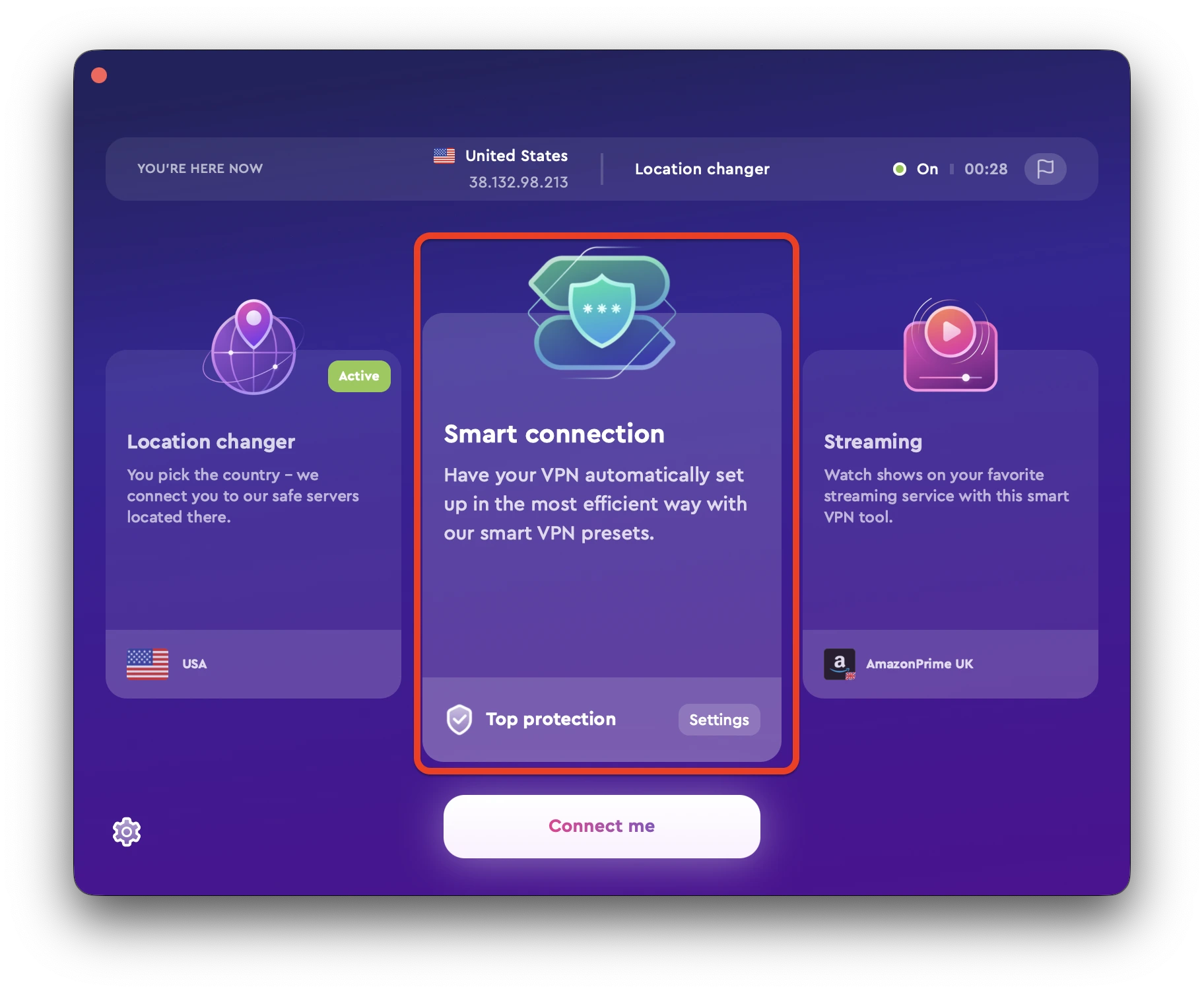In the complex realm of network security, there are two terms that often cause confusion — VPN (Virtual Private Network) and Firewall. While both are crucial for safeguarding your online activities, they have distinct functionalities, purposes and deployment methods.
It is essential to grasp these differences in order to protect your data and privacy effectively in this increasingly cyber-centric era. This guide aims to provide clarity by highlighting the unique aspects of VPN vs Firewall, enabling you to better understand and utilize these vital security tools.
So, let’s get right into it!
What is a firewall?
To start off, let’s define what exactly a firewall is. In simple terms, it acts as a security barrier that monitors and regulates incoming and outgoing network traffic. Its primary role is to act as a filter between your internal network and the internet, allowing legitimate data to pass through while blocking unauthorized access attempts.
Firewalls are commonly deployed at the network perimeter, serving as the first line of defense against external threats. They can also be set up internally within an organization to segment the network and control traffic.
How does a firewall work?
Firewalls employ various techniques such as packet filtering, proxy servers and application level gateways to examine network traffic.
Firewalls come in various types, butone of the most basic is a “packet filter.” These filters examine individual data packets by following predetermined rules. However, they have limitations as they only analyze the header information of a packet and cannot delve into its contents.
To overcome this limitation, we have proxy servers and application level gateways that offer advanced functionalities like content filtering, authentication and intrusion detection.
What is a VPN?
Now that we understand the basics of firewalls, let’s turn our attention to VPNs.
A VPN establishes a secure connection between your device and the internet, ensuring that your data remains encrypted and hidden from prying eyes.
To achieve this secure connection, VPNs employ encryption protocols that create an encrypted tunnel for all your internet traffic. This ensures that no one can intercept or decipher your data, providing you with a safe and private browsing experience. You can learn more about what is a VPN in this post.
So how does a VPN work?
When you connect to a VPN server, your device establishes a secure tunnel through which all your internet traffic is routed. This effectively hides it from entities such as your Internet Service Provider (ISP), government agencies or anyone else attempting to spy on you.
The VPN server acts as a middleman between your device and the internet, giving the impression that you’re accessing the internet from a different location. This enables you to bypass restrictions based on your geographical location and access content that may otherwise be blocked in your region.
The key difference between firewall and VPN
So, what sets firewalls and VPNs apart? Having mentioned the basic functions of both tools, let’s compare and contrast them.
Now the first major difference is function. A firewall protects your network by regulating incoming and outgoing traffic, while a VPN secures your online activities by encrypting and directing your internet traffic. To put it simply, firewalls safeguard your network while VPNs protect your data.
Another important difference is features. VPNs provide an added layer of anonymity by concealing your IP address and location, making it challenging for anyone to track what you do online. This feature can also be used to unblock content or get around censorship in specific regions. Firewalls lack this capability and are limited to filtering and monitoring network traffic (but is just as important).
As for implementation, firewalls are typically hardware-based safeguards implemented at the network level. In contrast, VPNs can exist as either hardware or software solutions that are used on individual devices.
What’s better VPN or Firewall?
The short answer is neither.
Both VPN and firewall serve different yet equally important purposes when it comes to safeguarding your online activities.
Firewalls play a crucial role in safeguarding your network from external threats, while VPNs ensure the confidentiality and integrity of your browsing data. To ensure comprehensive security for your online presence, it is advisable to have both a firewall and a VPN in place. Instead of considering them as competing tools, think of them as complementary measures that can work together harmoniously.
While most operating systems come equipped with built in firewalls, installing and using VPNs requires a separate setup. Fortunately, setting up a VPN on your device is a relatively straightforward process with various reliable options available.
For instance, ClearVPN offers an easy solution. Simply download and run our VPN app on your device (compatible with Windows, macOS, Android and iOS), choose the “Smart connection” shortcut and click/tap on the “Connect me” button.
Notice that ClearVPN also offers additional features such as a “Streaming” shortcut and a “Location changer” option. Both features provide a quick and easy way to change the IP address of your device, whether as a privacy measure or to get around geoblocking restrictions.
You can try ClearVPN for free now, just download and install VPN app and get 3 days of a free trial.
FAQs
Do firewalls allow VPN?
Certainly! When properly configured, firewalls won’t block VPN traffic. This enables secure connections for remote work or private browsing. However, specific settings and rules might need adjustment on the firewall to ensure it permits VPN connections.
Is VPN enough for security?
Although VPNs offer robust encryption and anonymity, relying solely on them is insufficient for comprehensive security. It is crucial to supplement with other measures such as employing an anti-virus software, utilizing strong passwords, regularly updating your software and being wary of phishing attempts.
